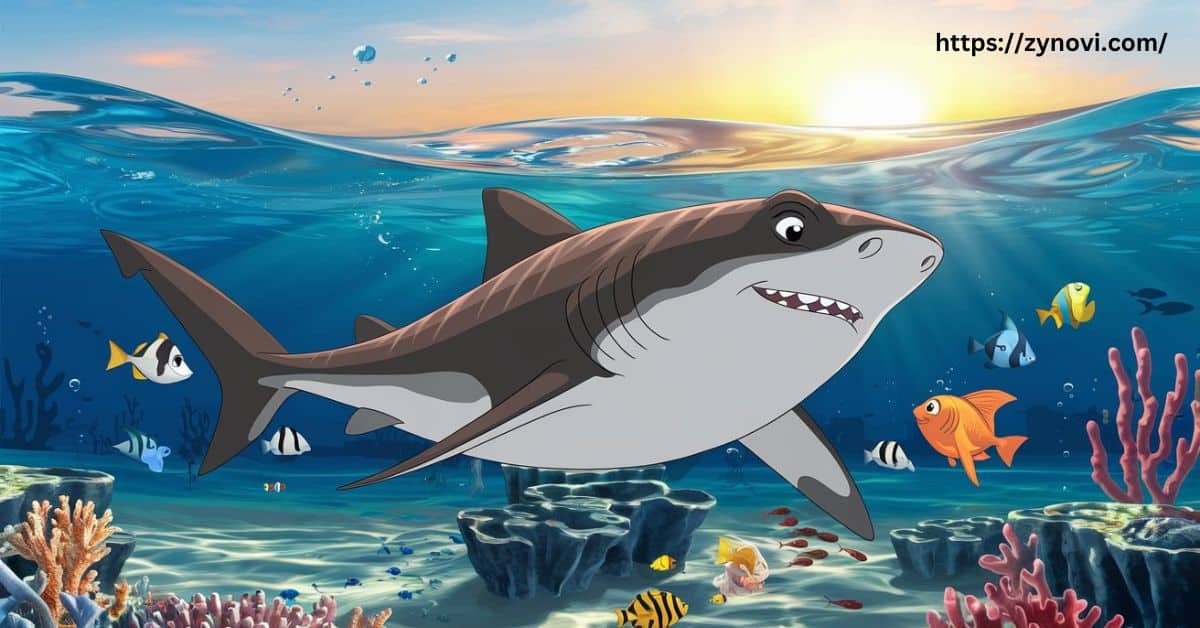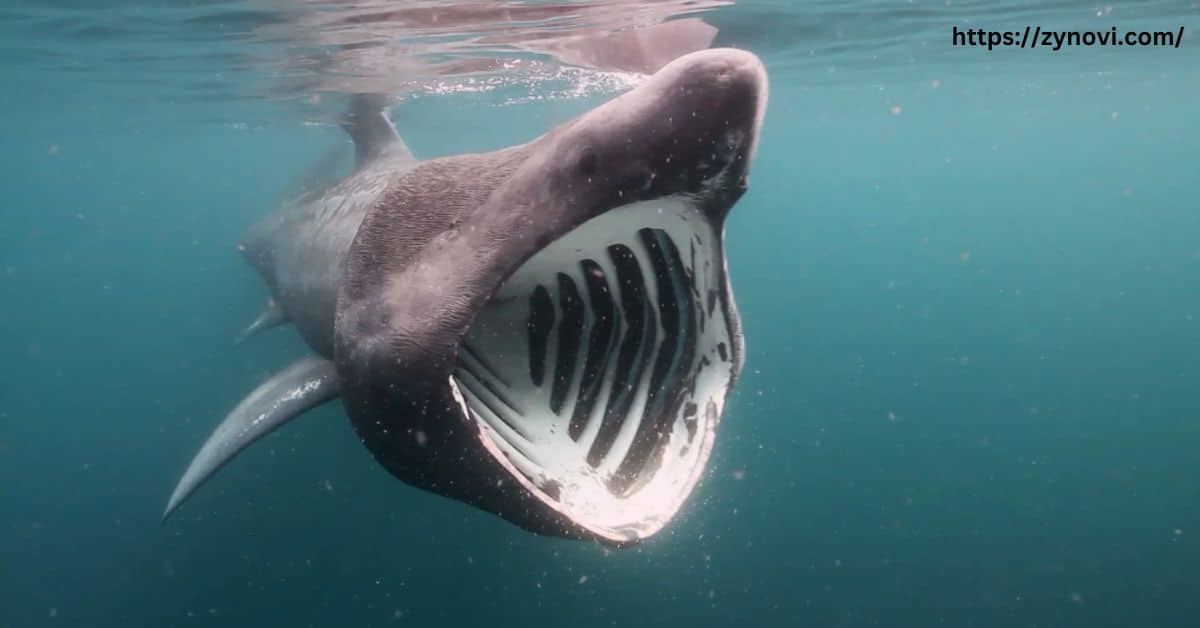Do Basking Sharks Attack Humans? No, basking sharks do not attack humans; they are gentle filter feeders with no aggressive behavior.
If you’ve ever wondered whether these enormous sea giants pose a danger, you’re not alone. With their massive mouths and intimidating size, basking sharks can seem like something out of a horror movie. But are they truly the threat they appear to be, or is their reputation simply misunderstood?
You’re about to uncover the truth about these gentle giants of the ocean. From their unique feeding habits to the myths that surround them, this article dives deep into everything you need to know. Ready to separate fact from fiction? Let’s read about
What Are Basking Sharks?
Key Characteristics of Basking Sharks
Basking sharks (Cetorhinus maximus) are the second-largest fish in the world, surpassed only by the whale shark. These gentle giants can reach an impressive length of 20 to 26 feet, with some individuals growing over 30 feet long.
They can weigh more than 11,000 pounds, making them one of the most massive marine animals. Despite their enormous size, basking sharks are entirely harmless to humans.
Their distinctive appearance, including a wide gaping mouth and large dorsal fins, makes them an iconic sight in the oceans they inhabit.
Physical features include:
| Physical Feature | Description |
|---|---|
| Skin | Grayish-brown mottled skin provides effective camouflage, allowing them to blend seamlessly into the ocean. |
| Mouth | Enormous gaping mouth, up to 3 feet wide, designed for efficient filter feeding of plankton and small organisms. |
| Dorsal Fins | Large and prominent dorsal fins often visible at the surface, making them easy to spot in the water. |
| Teeth | Tiny, vestigial teeth are evolutionary remnants with no practical function in their filter-feeding diet. |
Although massive in size and appearance, basking sharks are non-aggressive and harmless to humans, posing no threat despite their striking features.
Basking Sharks Among Shark Species
Basking sharks differ significantly from predatory sharks like the great white or bull shark. Key distinctions include:
- Diet: They are filter feeders, consuming plankton, small fish, and microscopic organisms.
- Feeding Method: Using specialized gill rakers, they filter massive volumes of water to trap food.
- Role in Ecosystem: Basking sharks play a critical role in maintaining marine biodiversity and balancing the marine food chain.
- Behavior: Unlike aggressive sharks, they are gentle and non-predatory.
Their unique feeding habits highlight their importance to the ocean’s ecosystem.
Distribution
Basking sharks inhabit temperate oceans worldwide, including areas off the UK coastlines, Ireland, and parts of the United States.
They prefer surface waters and are often seen swimming leisurely with their mouths open to filter food.
Do Basking Sharks Attack Humans?

Basking Shark Behavior
Basking sharks are known for their slow, graceful swimming and calm demeanor, making them one of the ocean’s most gentle giants. These sharks show no signs of aggression and prefer to spend much of their time near the water’s surface.
Here, they engage in filter feeding, using specialized gill rakers to trap plankton, small fish, and other tiny organisms.
Despite their massive size and dorsal fins often seen breaking the surface, their behavior is entirely harmless, often misunderstood due to myths and misconceptions about sharks in general.
Key Behavioral Traits:
- Non-aggressive: They avoid threats and show indifference to humans.
- Migratory patterns: Basking sharks migrate seasonally, following plankton blooms.
- Accidental collisions: These may occur when humans come too close, but they are not intentional attacks.
Documented Human Encounters with Basking Sharks
- Encounters Are Rare and Peaceful: Basking sharks are not commonly encountered, but when they are, the interactions are typically calm and uneventful.
- Shy and Indifferent Behavior: Divers and snorkelers often describe these sharks as shy, preferring to avoid human contact rather than engage.
- No Recorded Attacks: There is no evidence of basking sharks attacking humans, solidifying their reputation as harmless marine creatures.
- Accidental Tail Collisions: The most frequent “interaction” happens when humans inadvertently come too close to their large, powerful tails, resulting in accidental but non-aggressive contact.
Reasons Why Basking Sharks Don’t Attack Humans
Dietary Preference: Basking sharks are filter feeders, relying solely on plankton, small fish, and microscopic marine organisms, leaving no room in their diet for larger prey like humans.
Anatomy: Their small, vestigial teeth are not designed for biting or tearing flesh, making them physically incapable of harming humans.
Behavioral Adaptations: These gentle creatures are naturally non-aggressive, avoiding confrontations by steering clear of perceived threats, including humans.
Debunking Myths About Basking Sharks
- Size Equals Danger: Many people fear basking sharks due to their enormous size, assuming they’re dangerous predators. However, these gentle giants are entirely harmless to humans.
- Swallowing Humans Whole: The myth that basking sharks can swallow humans stems from their massive, gaping mouths. In truth, their esophagus is so small that only tiny prey like plankton can pass through.
- Misrepresentation in Media: Popular movies and sensationalized documentaries often depict basking sharks as threatening, spreading false information about their behavior and nature.
Safety Tips for interaction with Basking Sharks
To ensure a safe and respectful interaction with basking sharks:
- Maintain a Distance: Always keep a safe distance from basking sharks, especially from their powerful tails and gaping mouths. This reduces the risk of accidental collisions.
- Avoid Sudden Movements: Sudden or erratic motions can startle basking sharks, causing them to swim away or accidentally come too close in confusion.
- Respect Their Space: Boats and watercraft should maintain a significant distance to prevent stressing the shark or interfering with its natural behavior.
- Observe from Afar: Use tools like binoculars or underwater cameras to enjoy their presence without disturbing them, ensuring a safe and respectful experience.
The Ecological Importance of Basking Sharks in Marine

Role as Filter Feeders
As filter feeders, basking sharks play an essential role in maintaining marine biodiversity by consuming vast amounts of plankton.
Key Contributions:
- Controlling Plankton Populations: By feeding on plankton, basking sharks prevent overgrowth, which can lead to harmful algal blooms that disrupt marine ecosystems and deplete oxygen levels in the water.
- Aerating Water: Their constant movement while feeding helps circulate and oxygenate the water, promoting a healthier marine environment for other species.
- Indicator Species for Ocean Health: Basking sharks are highly sensitive to changes in water quality and plankton availability, making them vital indicators of the overall health of marine ecosystems.
Conservation Status and Challenges
Basking sharks are classified as a vulnerable species by the IUCN due to various human-induced and environmental threats.
Threats:
- Bycatch: These gentle giants often become accidentally entangled in fishing nets, leading to injuries or fatalities.
- Habitat Degradation: Coastal development and pollution, such as plastic waste and chemical runoff, have severely affected their natural habitats.
- Fin Trade: Despite legal bans in many countries, the high demand for shark fins continues to endanger basking shark populations.
- Climate Change: Shifting ocean temperatures and currents disrupt plankton distribution, directly affecting the basking shark’s primary food source.
Conservation Efforts:
- Marine Protected Areas: Designating regions of the ocean as safe zones helps preserve basking shark habitats and limits human activity in critical areas.
- Fishing Regulations: Stricter enforcement and modifications to fishing gear minimize the risk of accidental bycatch, reducing mortality rates.
- Eco-Tourism: Promoting responsible wildlife tourism raises public awareness and funds for conservation initiatives, creating incentives to protect these sharks.
Basking Sharks in Popular Culture

Representation in Media and Literature
Basking sharks have captured the imagination of filmmakers, authors, and marine enthusiasts alike, often appearing in documentaries and educational programs as symbols of the ocean’s mysterious beauty.
Their sheer size, slow surface swimming, and gaping mouths make them fascinating subjects, frequently misunderstood due to their imposing appearance.
While some media portray them as gentle giants contributing to marine biodiversity, others exploit their image for dramatic effect, fueling myths about danger.
Nonetheless, they remain a favorite topic for marine conservation campaigns and literary exploration.
Cultural Significance Around the World
Basking sharks hold varied symbolic meanings in different cultures. In coastal communities, they are often seen as symbols of strength and resilience due to their massive size and ability to endure long migrations.
Some fishermen regard sightings of these gentle giants as harbingers of good luck, especially during fishing seasons. Their presence in local folklore and traditions reflects their importance in fostering a deeper connection between humans and marine life.
Final Verdict
Basking sharks are gentle giants of the ocean, posing no threat to humans. Their non-aggressive nature, combined with their filter-feeding habits, emphasizes their crucial role in maintaining a balanced and healthy marine ecosystem.
Misconceptions about basking sharks, often fueled by their immense size and exaggerated media portrayals, lack any basis in documented evidence. These magnificent creatures deserve respect and protection as an essential part of the ocean’s biodiversity.
FAQs
Has a basking shark ever hurt a human?
No, there are no recorded incidents of basking sharks ever hurting a human.
Are basking sharks aggressive?
No, basking sharks are non-aggressive and are known for their gentle behavior.
Can a human fit inside a basking shark?
No, despite their large mouths, their esophagus is too small to swallow anything larger than plankton.
Can you touch a basking shark?
It’s best to avoid touching a basking shark to ensure both your safety and the shark’s well-being.
Conclusion: Do Basking Sharks Attack Humans?
In conclusion, basking sharks are harmless gentle giants that play a vital role in enriching marine ecosystems. Despite their massive size and intimidating appearance, they pose no threat to humans due to their non-aggressive nature and exclusive diet of plankton.
Observing these majestic creatures in their natural habitat can be both safe and awe-inspiring when approached responsibly. By spreading accurate information, dispelling myths, and supporting ongoing conservation efforts, we can help ensure that these incredible sharks thrive and continue to benefit the ocean for generations to come.










